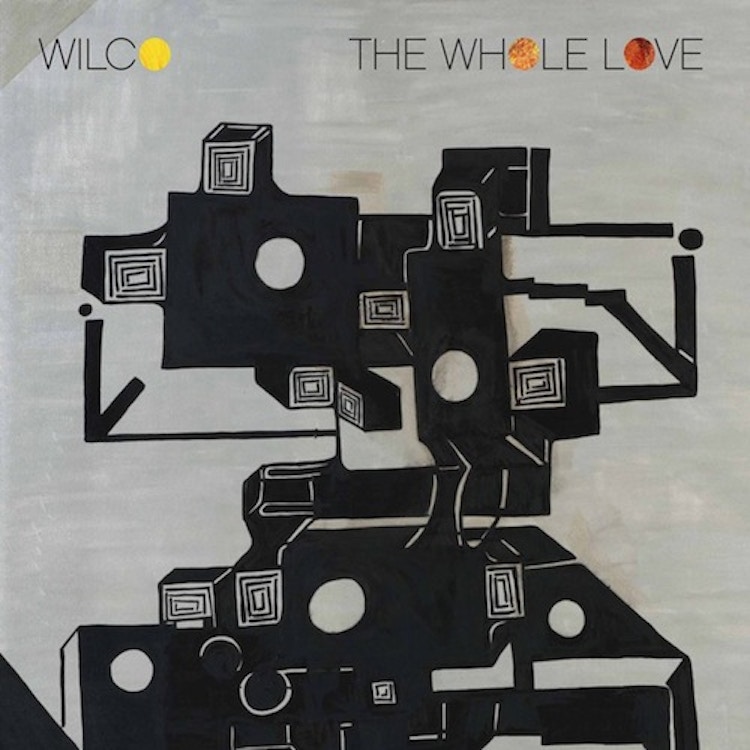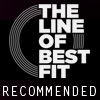"The Whole Love"

Looking back over his personal discography, you cannot help but be impressed by Jeff Tweedy’s productivity, to the point where you start to wonder if his days are more than 24 hours long. Since 1990, he’s released albums with Uncle Tupelo, Golden Smog and Loose Fur, written an original film score, guested as a guitarist on more than a dozen records and released four DVDs (two live, two documentaries). And that’s before we even get to his most beloved and popular musical outlet, the inimitable Wilco.
Now on their eighth studio album, Wilco maintain the kind of cult following which most groups can only attract for a year or two at best. The drop-off from popularity to obscurity can be steep and unmerciful at times – just ask Klaxons – and even the greatest bands’ antics can wear down their fanbase over time: the endless back-stabbing of The Rolling Stones in the 1980s, The Beach Boys’ disintegration, et cetera.
Yet Wilco, now in their eighteenth year of existence, remain an exciting, listenable and intriguing band. The Whole Love, the first to be released on their own label dBpm, should ensure that this deserved reputation continues.
Where the Illinois six-piece succeed is in their originality and unexpectedness. No matter how many albums they release, we’re never sure what to expect; indeed, track-to-track they can jump from post-rock to prog-rock, or from punk to pop. 2002’s landmark Yankee Hotel Foxtrot is an exemplar of this philosophy, and while The Whole Love has been released some nine years afterwards, it feels like a natural successor to YHF.
Wilco’s whole ethos is pretty much summed up in opening track ‘Art of Almost’. With Tweedy’s communicative vocals arcing over its entire seven-minute running time, we go from a funky bleeps-and-bloops electronica opening to a lush string sample, back again and then into a borderline-psychotic distorted guitar solo as the song finishes. There’s a fearlessness to the track which perfectly encapsulates Wilco’s organic songwriting style. The final prog-punk throes of the songs closing solo go on a touch too long, but ‘Art of Almost’ is an early marker of intent from the Chicagoans, and for those unfamiliar with Wilco it will be a baptism of fire too.
Were you to then “skip to the end”, as Simon Pegg once said in Spaced, you’d think there was another band moonlighting for Wilco on The Whole Love. Lengthy closer ‘One Sunday Morning’ is a tender, sun-flecked exercise in composition, a world away from ‘Art of Almost’s fearsome finale.
A gorgeous, simple acoustic guitar and piano refrain pops up time and again, bouncing off a country backbeat as Tweedy delivers some astonishingly pained lyrics: “Something sad keeps moving / So I wandered around / I fell in love with the burden / Holding me down”. Its twelve minutes don’t drag at all, Tweedy sounding conversational, almost confessional, as he spills out devastatingly tragic lyrics over the seemingly sunny backing. His voice barely raises above speaking volume, but it’s still powerful stuff: knowledge of Tweedy’s personal battle with depression and addiction only increases the emotional connection we feel. Its closing instrumental is one of the most beautifully arranged pieces of music you’ll hear all year to boot.
Indeed, it’s the quieter moments of The Whole Love in which Wilco really excel. Listening to them making an incredible racket is fun, but the more reserved songs offer a better insight into their talent. There’s an underlying funk to single ‘I Might’, as John Stirratt’s bass and Glenn Kotche’s drums lay a solid but pliable foundation, and the combination of melodic organ and vocal lines with the rhythm section’s punch make it one of the highlights of the record.
‘Sunloathe’ and ‘Black Moon’ take things down a notch or two further, the former haunted by Tweedy’s lilting vocals and an ethereal guitar sound for much of its duration, the latter a folksy acoustic number which mixes rustic charm with more expansive soundscapes including string arrangements and another ghostly guitar melody from Nels Cline.
The plaintive ‘Open Mind’ and whimsical ‘Capitol City’ offer glimpses of Wilco’s optimistic side, and both profit from the group’s feel for one another’s playing style, the melodies interlocking seamlessly through both. However, ‘Born Alone’ probably steals the whole show. Opening with a superb guitar riff, it combines the punky distortion of Wilco’s heavier efforts with an outwardly chirpy melody, undercut by Tweedy’s lament that “I was born to die alone”. For me, it’s the standout track on a superb record.
The Whole Love as a work could conceivably be divided onto two sides: one, a stripped-down acoustic set, and two, a punchy, volatile alt-rock extravaganza. As the two sides to Wilco’s personality intertwine throughout their eighth album, however, you realise that blithely splitting these two sides apart is impossible. ‘Standing O’ and ‘Rising Red Lung’, which follow one another toward the record’s close, may not sound similar stylistically, but they, like so much of Wilco’s other work, are twinned, bound together by Tweedy’s ever-impressive vocals and a nuanced melody.
After getting started, staying relevant is perhaps the hardest thing a band has to do. Wilco are now in this latter part of their career, but as The Whole Love ably displays, they’re not about to mortgage their musical ideals for record sales, nor are they fading into a group we all used to like, but are now bored by. No, Wilco retain the same charm and talent that drew us to them in the first place, and in The Whole Love have turned out one of their best albums: it is, to quote ‘Wilco (The Song)’: “a sonic shoulder for you to cry on”. Brilliant.
Get the Best Fit take on the week in music direct to your inbox every Friday

Tunde Adebimpe
Thee Black Boltz

Julien Baker & TORRES
Send A Prayer My Way

Bon Iver
SABLE, fABLE






